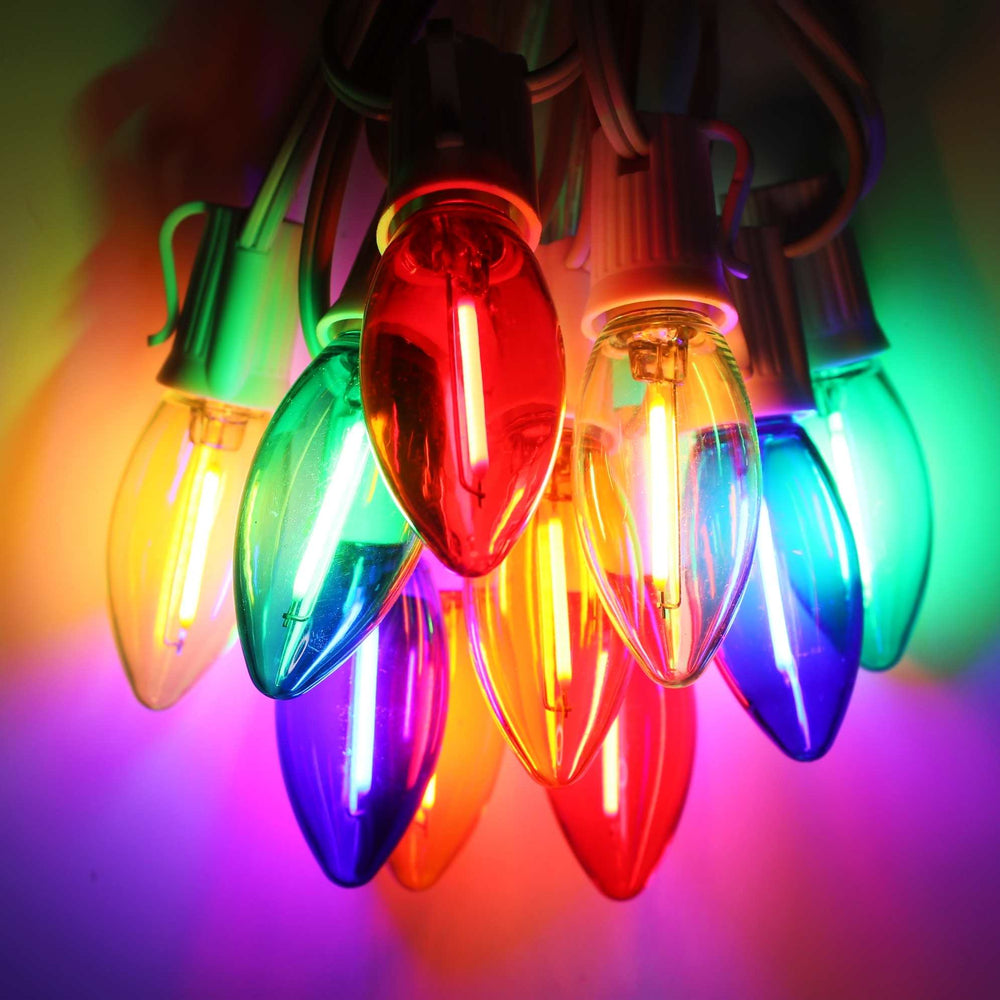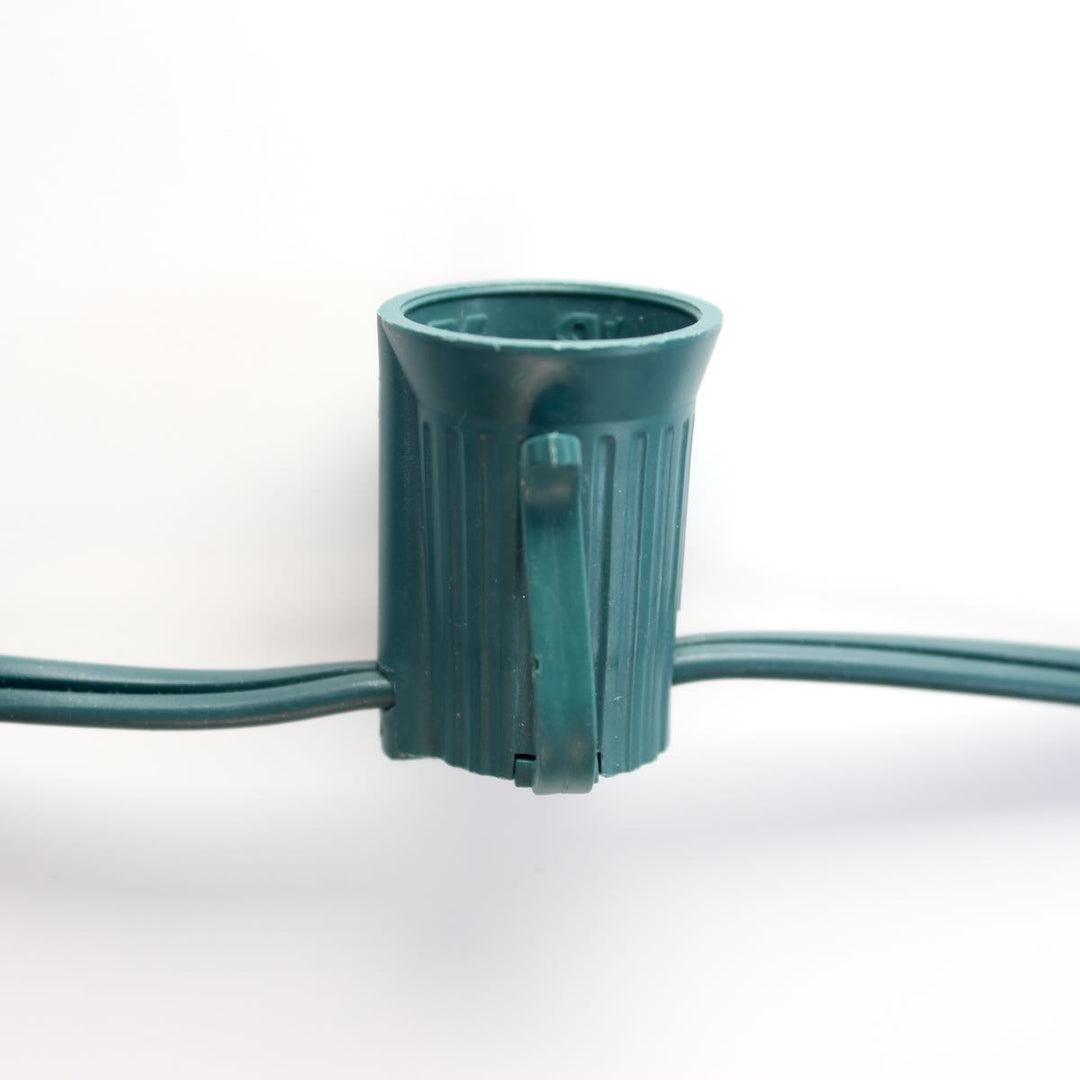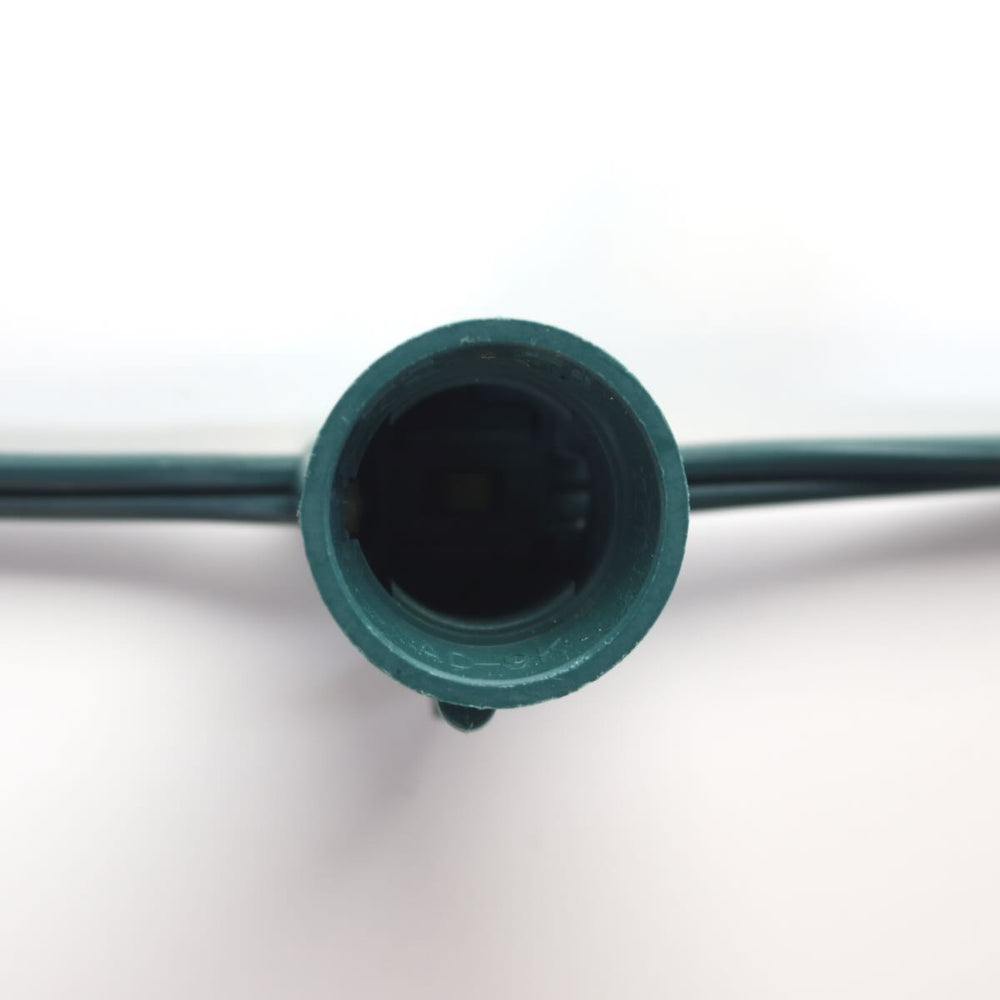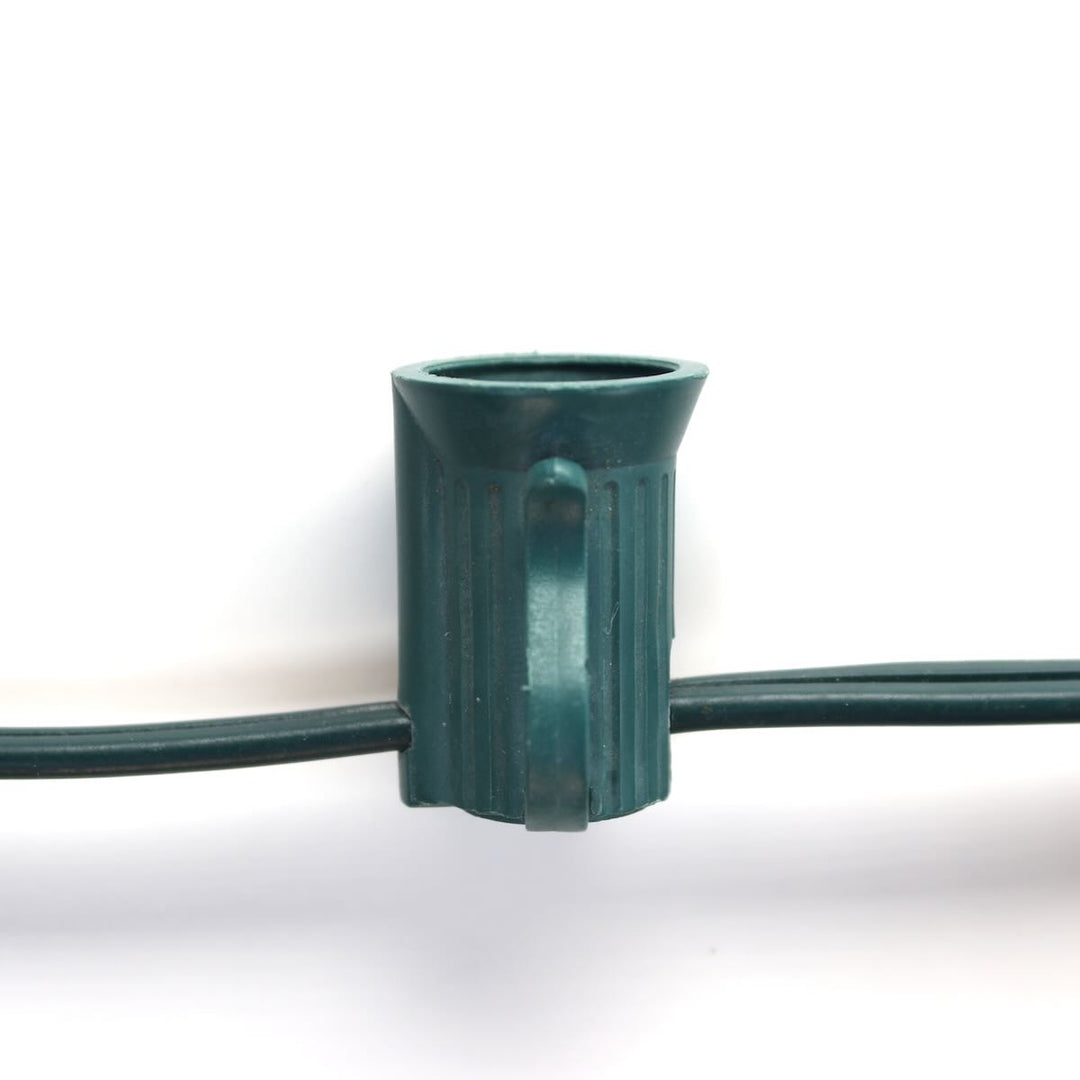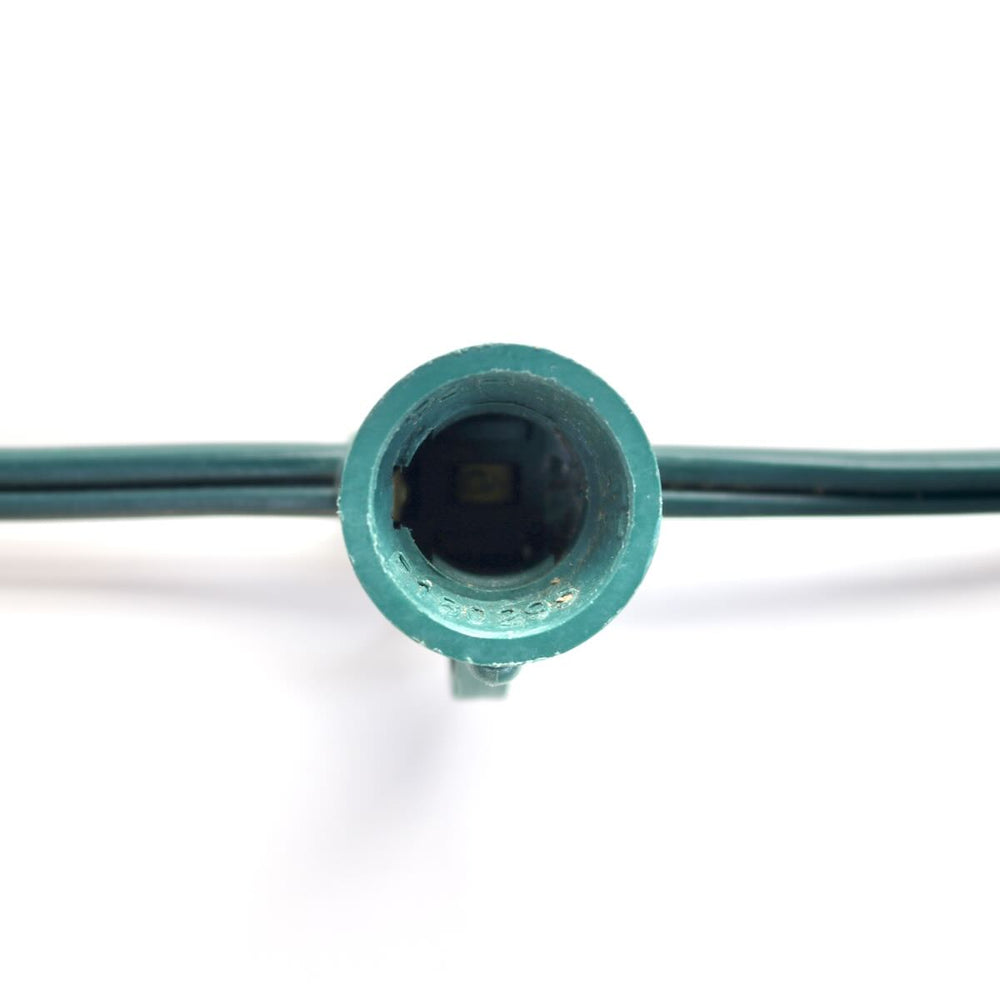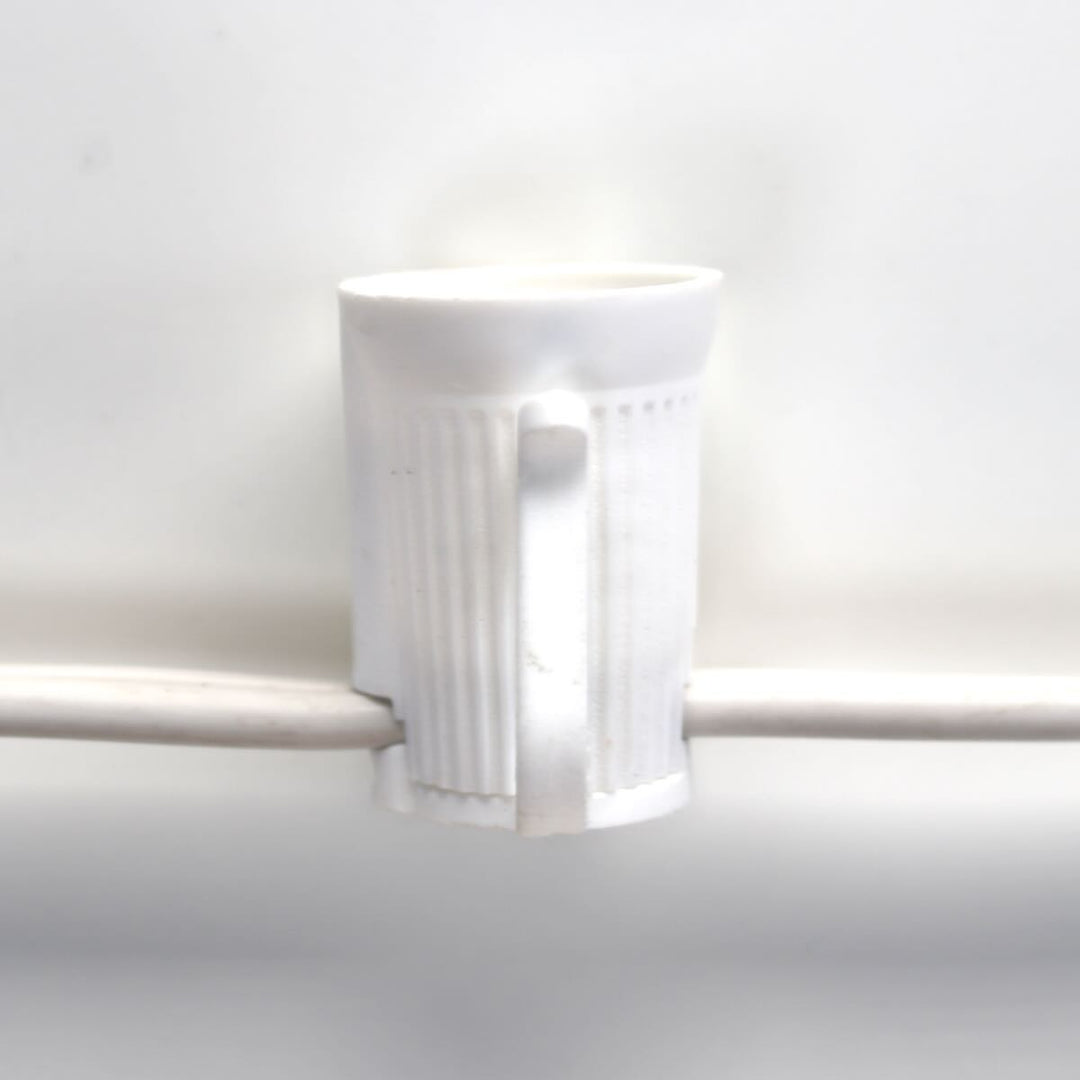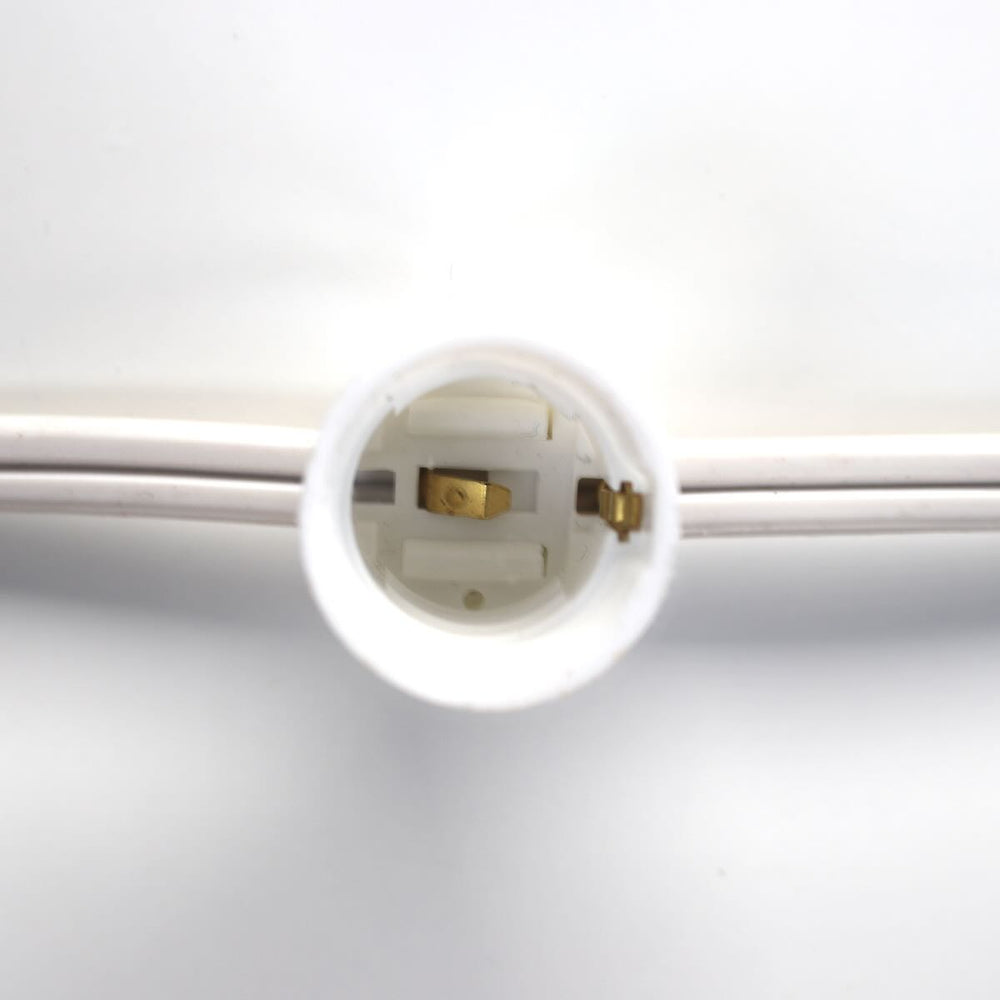Will your C7 or C9 bulbs work in my cords?
Short answer
Maybe. If your cords are standard commercial-grade sets with E12 (C7) or E17 (C9) bases, the bulbs sold on our website should work perfectly.
However, some custom or inexpensive cords—especially those from big-box stores—may not be compatible. These are often made with non-standard socket depths that prevent standard bulbs from fitting correctly.
Longer answer
In the past, this was an easy “yes.” If you were using traditional threaded C7 or C9 bulbs and cords—the kind that have lined rooflines for decades—everything was standardized.
Unfortunately, things have changed. Some big-box stores now sell budget “C7” and “C9” light strings that only look standard. These imitation sets, often around $7 for both cord and bulbs, use slightly smaller sockets that don’t match industry-standard E12 or E17 bases.
So how can you tell what you have?
Check the socket size on the original packaging.
-
C7 bulbs fit cords with E12 (candelabra) bases — 12 mm in diameter.
-
C9 bulbs fit cords with E17 (intermediate) bases — 17 mm in diameter.
Below is a photo comparing the two:

-
The socket on the right fits a C7 bulb (same as a night-light bulb).
-
The socket on the left fits a C9 bulb (E17 / Intermediate base).
If your lights have push-in bulbs instead of screw-in sockets, those are a completely different style and not compatible with traditional threaded C7 or C9 bulbs.
If you already own non-standard cords, your best option is to check with the store where you purchased them or contact the manufacturer to find replacements that fit.
For future reliability, look for standard, commercial-quality 18-AWG cords (20-AWG for some 25-foot sets). These are wired in parallel, meaning if one bulb is removed, the others stay lit. Avoid cords wired in series (constant current)—if one bulb fails, a section may go dark.


